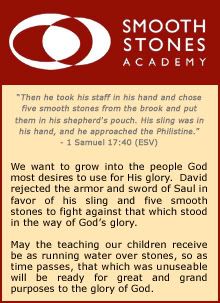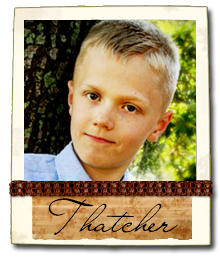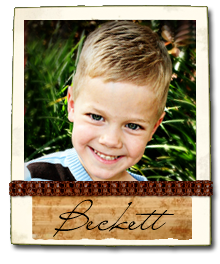
In advance let me say this post is more about my
experience than any true
expertise. Having said that, I was 110% a non-athletic person prior to training for my first race. I have always said, and truly believe, that if
I can do it,
anyone can! And just to prove the point, some of my best friends from high school thought I was joking about having run 26.2 miles. They didn't believe I had actually run a marathon until they saw my race results online! Hopefully sharing my experience can help spur someone to go for their goal as well, be it running around the block, a 5K, 10K, half-marathon or full!
One more thing before beginning...why running? Why not another sport? Here are my reasons:
1. Running is one of the cheapest forms of exercise out there-good running shoes (non-optional to avoid strain and injury) and some performance apparel (optional but highly recommended) and you're set. 2. It is good to be outside - even with Houston's bugs and humidity!3. Cardio! We all need cardio (getting up to your target heart-rate for at least 20 minutes a minimum of 3x per week) and strength-training exercises in our workout regimen. Not many exercises have the heart benefit that running does. Cross-country skiing, swimming and the elliptical trainer are a few others, but I don't have access to mountain or a pool and an elliptical trainer is expensive. 4. Nothing will help you lose weight, change your body and make you lean like running. 5. Ever heard of a runner's high? Let me just say, it's awesome! (The blog linked here is a little salty but it's truly the best explanation of this phenomenon I found.) Here is how I became a runner. It worked for me and hopefully it will work for you, too. First pick out a three mile path and start walking. Depending on your current level of fitness you may want to walk for a month or more trying to increase your speed as the month progresses. Once you can walk the path with ease it's time to start running. At first just don't worry about running the entire path. Don't worry about running even a mile. Just run for a few minutes until you are out of breath. Then walk until you feel like running again. Each time you run push yourself just a tiny bit more. If you do this for another month or so, you'll be able to run the entire course in another four to six weeks. Believe me!
Too many people just try to go out there and run. No wonder they get discouraged. Running to a body that is hardly used to any form of exercise is like giving Red Bull to a body that has never tasted caffeine. Talk about a jolt! You need to give your heart time to build the endurance to run, your muscles the time to tone and strengthen to support that run and (this is especially true for me) your knees and hips the time to acclimate to pounding on the pavement.
I am suggesting giving yourself eight to twelve weeks (again, depending on your current level of fitness it may take more or less time) to run three miles. That may seem like a lot of time to our "I want it now!" culture where we get frustrated if we have to wait more than two minutes for anything. Here's the reality though - if you are like me, it took you awhile to get to your current level of "unfitness" and it's going to take some time to become fit. It's not automatic and the sooner we Americans accept that, the better off we'll be IMHO.
Then, from there you build. Once you run can three miles four times a week for a month or more you can start training for a race. Again, this is all my opinion so you may want to consult some "real" experts before beginning. Now you're ready; pick a race and
pay for it! There's nothing more motivating that the thought if you don't get out there, you're throwing away $25 or $50 (or more). Start with a 5K (3.1 miles) then move up to a 10K (6.2 miles) and so on. Bring some friends along and have fun!
Four more thoughts before closing this marathon (pun intended) post...
First, do not (and I repeat do not) worry about how fast you run. It doesn't matter. Just keep moving. In almost every article that addresses this issue they will tell you that a long slow run does more to burn fat reserves, get you in shape and change your body than a quicker run of the same distance. Go slow and if you feel like stopping just slow your pace. My rule is that I don't stop - ever - I just plod along as slow as a snail but I keep moving all the time. It is too hard for me to start back once I've stopped and I know many runners who feel the same.
Second, listen to your body. If you've never done any endurance-type exercise this can take some getting used to for sure. Learn the difference between your body saying, "Hey, I don't like this because you're making me work too hard. I'd rather go home and chill on the couch!" and , "Hey, I am in true pain here!" For the former you push on and for the latter you stop and possibly even seek medical attention. In training for my first marathon I had to go to a sport's medicine doc for
IT Band Syndrome. If you listen to your body when it's trying to convince you to go home, you'll never reach your goal. If you don't listen to your body when you are experiencing pain, you'll never reach your goal because an injury will sideline you. Don't let either scenario happen to you. One more thing, if you do experience some pain or a mild injury, don't get discouraged. It happens to almost all runners at some point. Cross-train while you are healing if you are able and then get right back to running!
Third, try to find a group of more experienced runners to join. I was absolutely terrified the first time I ran with what I considered to be "real runners". I knew I would be too slow, not have the right shoes, the right stride, hold my arms properly...but you know what I learned? The running community is amazing. They are just waiting to help newbies experience the same success and triumph they have (Kinda sounds like the homeschooling community, doesn't it?!) Jump in and go for it!
Fourth, hydrate! It will make a huge difference in how you feel during and even after your run. I have found that if I drink 8-8oz glasses of water plus decaffeinated coffee/tea in the morning and decaffeinated green tea during the day I stay properly hydrated. Remember too that for every one cup of caffeinated beverage you drink you must subtract one glass from your drink total for the day (ex. if you drink 10 cups of water in the day but also 2 cups of coffee and 2 diet cokes then your total beverage intake is only 6 cups of fluid.) If you feel crummy during your run, it may be your body telling you it needs more H20!
Good luck and let me know how it goes!































